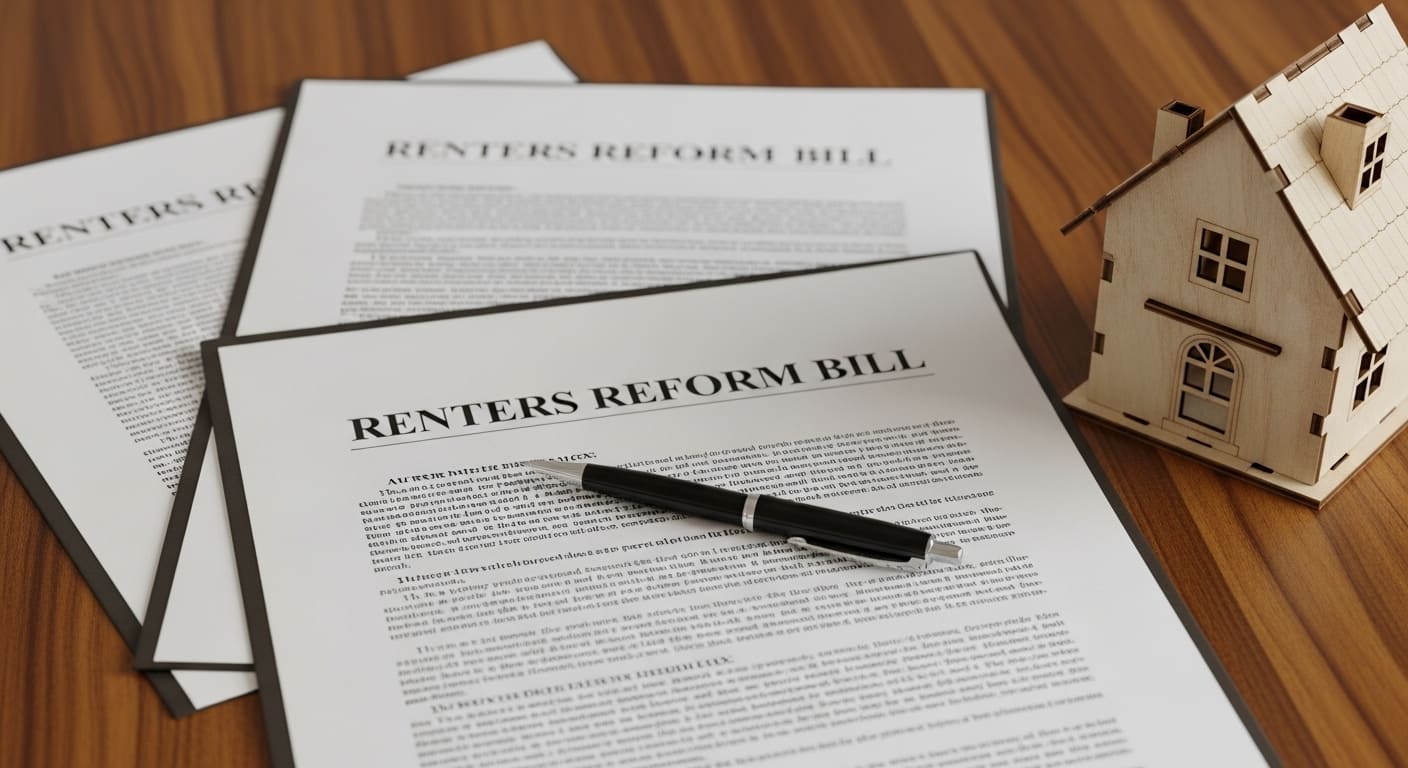Introduction:
Renting a home in the UK is about to change in a big way. The Renters Reform Bill has been one of the most talked about pieces of housing legislation in recent years, with the aim of creating a fairer, safer and more balanced relationship between landlords and tenants. The bill, designed to modernize archaic rental laws, has become a major step towards protecting the rights of tenants and improving standards in the housing sector.
For millions of tenants, this new law promises better security, transparency and security. But what is actually included in the Renters Reform Bill and how does it affect both tenants and landlords? Let us know in detail.
The Changing landscape of renting in the UK
Over the past decade, renting has become the primary housing option for many people in the UK. The rental market is growing due to rising property prices, increasing demand and flexible working lifestyles. However, tenants have long faced problems such as sudden evictions, irregular rent increases and poor property maintenance.
The government recognized that the system needed reform. The Renters Reform Bill was introduced to address these issues by focusing on fairness, sustainability and accountability. It represents the biggest change to private letting in over 30 years, and ensures that both parties – landlords and tenants – have clear rights and obligations.
Key Highlights of the Renters Reform bill
The Renters Reform Bill is comprehensive, but some key changes stand out:
• Abolition of section 21 “no-fault” evictions: Landlords will no longer be able to evict tenants without a valid reason.
• Improved property standard: A decent housing standard for private rental must be introduced to ensure safe and well-maintained living conditions.
• Strong tenant protection: Tenants will have greater flexibility to challenge unreasonable rent increases or poor living conditions.
• New landlord register: A national database of landlords will help ensure accountability and make it easier for tenants to verify who they are renting from.
Each of these measures is designed to modernize the rental market and protect those who rely on renting as their main housing option.
How it affects tenants: better rights and stability
For tenants, this bill offers hope for long-term stability and dignity. The Renters Reform Bill aims to eliminate the constant fear of sudden eviction and unfair treatment.
Under the new system, tenants can expect:
• Longer and safer tenancies
• Strong rights to challenge rent hikes
• Legal backing to demand safe and habitable homes
These updates mark a major victory for tenant rights in the UK, giving tenants the confidence to treat their rental properties as real living spaces rather than temporary shelters.
For many people, it also means the ability to plan their lives with greater certainty – knowing that a landlord cannot evict them only to re-let the property at a higher price.
Impact on landlords: Adapting to new responsibilities

The Renters Reform Bill is not just about tenants – it also introduces important changes for landlords. While this increases accountability, it also provides a clear structure for maintaining business relationships with tenants.
Landlord’s responsibilities under new law include:
• Provide a valid reason for eviction (for example, sale of property or tenant default).
• To maintain the properties according to the standard of decent houses.
• Registration with the new landlord database.
• Maintain transparent lease and contract terms.
Although some landlords are concerned about increased regulation, others see it as a way to professionalise the sector, attract responsible tenants and build trust. Those who manage assets properly are likely to profit in the long run.
Tenant rights in the UK: what you need to know
The British rental market has often been criticized for a lack of balance between landlords and tenants. With the Renters Reform Bill, this balance shifts towards fairness.
Some important tenant rights in the UK under the new law include:
• Right to a written tenancy agreement that clearly outlines responsibilities.
• Right to live in a property that meets safety and health standards.
• Right to contest unreasonable rates increases through an independent assessment process.
• Right not to be evicted without reason.
This bill reinforces these principles by giving tenants easier access to remedies and support from local authorities. In short, tenants now have a stronger voice and more control over the housing situation.
Landlord’s responsibility under new law
The landlord’s responsibility under new law is extensive, but practical. The aim is to ensure consistency and professionalism throughout the rental industry.
Landlords must now:
• Register your properties in the national database.
• Maintain regular property inspections and safety checks.
• Communicate any changes to the price in a transparent manner.
• Give proper notice before any attempted eviction.
Failure to meet these standards may result in fines or deletion from the National Register. By enforcing these rules, the government hopes to increase the overall quality of rental housing and reduce exploitation.
Challenges and concerns ahead

Although the Renters reform proposal has been widely praised, it has also raised some concerns. Critics argue that increased regulation could discourage small landlords from remaining in the market, potentially reducing rental supply. Others worry that it may take time for enforcement systems to be fully operational.
However, proponents believe that the benefits outweigh the risks. A fair and transparent system can encourage long-term investment and lead to a more sustainable housing sector. In time, both landlords and tenants are expected to adapt and benefit from the clarity provided by this bill.
Government Vision for Fair housing
At its core, the Renters reform proposal reflects the government’s approach to fair housing – which prioritizes safety, dignity and equality. By setting high standards and clear rules, the government aims to stamp out rogue landlords and protect vulnerable tenants.
The initiative is also part of a wider national effort to tackle the housing crisis, increase affordable options and modernize the property market. It is linked to other housing strategies designed to make renting a long-term, stable option for UK residents.
Conclusion:
The Renters Reform Bill represents an important moment in the development of the UK housing market. It gives tenants long-term protection and respect, while setting clear and reasonable expectations for landlords.
By improving tenant rights in the UK and enforcing landlord responsibilities under new legislation, the Bill aims to create a rental sector where everyone – regardless of income or background – can live safely and securely.
Ultimately, this reform is not just about politics; It’s about the people. It is not just about building houses, but about creating trust between those who own houses and those who rent them. With time and consistent enforcement, the Renters Reform Bill could redefine the meaning of renting in the UK – making it fair, safe and sustainable for generations to come.












